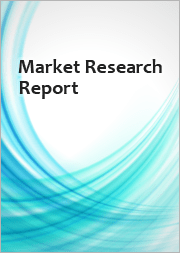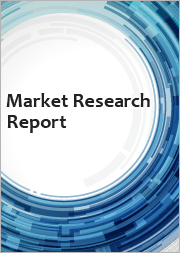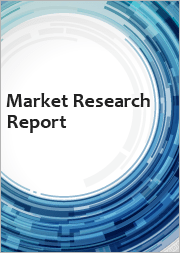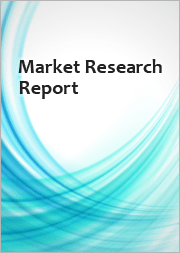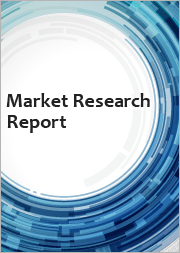
|
시장보고서
상품코드
1807145
가금류 의약품 시장 - 세계 산업 규모, 점유율, 동향, 기회, 예측, 종별, 제품별, 질환별, 유통 채널별, 지역별, 경쟁별(2020-2030년)Poultry Medicine Market - Global Industry Size, Share, Trends, Opportunity, and Forecast, Segmented By Species, By Product, By Disease, By Distribution Channel, By Region and Competition, 2020-2030F |
||||||
세계의 가금류 의약품 시장 규모는 2024년에 67억 8,000만 달러로 평가되었고, 2030년에는 101억 달러에 이를 것으로 예측되며, CAGR은 6.84%를 나타낼 전망입니다.
세계의 가금류 의약품 시장은 고기와 계란과 같은 단백질이 풍부한 식품에 대한 세계적인 수요 증가에 대응하기 위해 가금류 산업이 중요한 역할을 계속하고 있기 때문에 꾸준히 확대되고 있습니다. 상업 가금류의 성장과 수의학의 진보는 효과적인 치료와 예방 솔루션에 대한 강한 수요를 창출하고 있습니다. 조류 인플루엔자, 뉴캐슬병, 콕시듐증 등 가금 관련 질병의 유행이 증가함에 따라 동물의 건강 관리를 개선할 필요성이 더욱 시장을 밀어 올리고 있습니다. 무리의 생산성을 유지하고 사망률을 최소화하기 위해 백신, 의약품 및 사료 첨가물의 채용이 증가하고 있는 것이 이 분야에 대한 투자 확대를 촉진하고 있습니다. 고품질의 닭고기 제품에 대한 소비자의 강한 선호도 바이오 보안과 고급 건강 관리 관행에 대한 관심 증가로 이어져 가금류 의약품의 성장을 자극하고 있습니다.
| 시장 개요 | |
|---|---|
| 예측 기간 | 2026-2030년 |
| 시장 규모 : 2024년 | 67억 8,000만 달러 |
| 시장 규모 : 2030년 | 101억 달러 |
| CAGR : 2025-2030년 | 6.84% |
| 급성장 부문 | 감염성 기관지염 |
| 최대 시장 | 북미 |
주요 성장 요인 중 하나는 선진국, 개발도상국을 불문하고 가금육의 소비가 급증하고 있다는 것입니다. 이러한 소비량 증가는 가금 생산자에게 가금군의 건강 유지라는 큰 압력을 주어, 예방약이나 치료제 수요를 만들어내고 있습니다. 시장을 형성하는 현저한 동향은 항균제 내성에 대한 우려에서 프로바이오틱스, 식물성 첨가제, 백신 등 항생제를 대체하는 솔루션으로의 이동 증가입니다. 진단과 정밀수의료에 있어서의 기술의 진보도, 질병의 조기 발견과 치밀한 치료를 가능하게 해, 가금의 건강 관리의 효율을 높이고 있습니다. 기세를 늘리고 있는 또 다른 동향은 가금 생산성을 향상시키고 손실을 줄이기 위해 백신접종, 영양보조식품, 위생습관을 조합한 종합위생관리 프로그램의 채용입니다.
강력한 성장 전망에도 불구하고, 시장은 예측 기간 동안 그 가능성을 억제할 수 있는 문제에 직면하고 있습니다. 첨단 가금류 의약품 및 백신과 관련된 높은 비용은 특히 가격에 민감한 경제권의 중소규모 농가에게는 여전히 장벽이 되고 있습니다. 동물용 의약품, 특히 항생제의 승인과 사용에 대한 엄격한 규제 프레임워크도 제조업체에게 컴플라이언스 과제가 되고 있습니다. 항균제 내성에 대한 우려 증가는 규제의 엄격화를 촉진하고 특정 전통적인 의약품의 채용에 영향을 줄 수 있습니다. 게다가 합리적인 가격과 혁신의 균형을 유지하는 것은 업계 이해관계자들에게 여전히 중요한 과제입니다. 환경과 식품의 안전에 대한 우려를 해결하면서 효과적인 가금류 의약품을 널리 이용할 수 있도록 하는 것은 세계의 가금류 의약품 시장의 장기적인 성장을 유지하기 위해 계속 중요합니다.
주요 시장 성장 촉진요인
가금육과 계란 소비량 증가
주요 시장 과제
고급 동물 의약품의 높은 비용
주요 시장 동향
항생제가 없는 가금류 생산으로 이동
목차
제1장 개요
제2장 조사 방법
제3장 주요 요약
제4장 고객의 목소리
제5장 세계의 가금류 의약품 시장 전망
- 시장 규모와 예측
- 금액별
- 시장 점유율·예측
- 종별(닭, 칠면조, 오리, 기타)
- 제품별(생물학적 제제, 의약품, 약물 첨가 사료)
- 질환별(뉴캐슬병, 감염성 기관지염, 감염성 부루사병, 콕시듐증, 살모넬라증, 말렉병, 기타)
- 유통 채널별(동물 병원 및 클리닉, E커머스, 오프라인 소매점, 기타)
- 기업별(2024년)
- 지역별
- 시장 맵
제6장 북미의 가금류 의약품 시장 전망
- 시장 규모와 예측
- 시장 점유율·예측
- 북미 : 국가별 분석
- 미국
- 멕시코
- 캐나다
제7장 유럽의 가금류 의약품 시장 전망
- 시장 규모와 예측
- 시장 점유율·예측
- 유럽 : 국가별 분석
- 프랑스
- 독일
- 영국
- 이탈리아
- 스페인
제8장 아시아태평양의 가금류 의약품 시장 전망
- 시장 규모와 예측
- 시장 점유율·예측
- 아시아태평양 : 국가별 분석
- 중국
- 인도
- 한국
- 일본
- 호주
제9장 남미의 가금류 의약품 시장 전망
- 시장 규모와 예측
- 시장 점유율·예측
- 남미 : 국가별 분석
- 브라질
- 아르헨티나
- 콜롬비아
제10장 중동 및 아프리카의 가금류 의약품 시장 전망
- 시장 규모와 예측
- 시장 점유율·예측
- 중동 및 아프리카 : 국가별 분석
- 남아프리카
- 사우디아라비아
- 아랍에미리트(UAE)
제11장 시장 역학
- 성장 촉진요인
- 과제
제12장 시장 동향과 발전
- 합병과 인수
- 제품 출시
- 최근 동향
제13장 혼란 : 분쟁, 유행, 무역 장벽
제14장 Porter's Five Forces 분석
- 업계 내 경쟁
- 신규 진입의 가능성
- 공급자의 힘
- 고객의 힘
- 대체품의 위협
제15장 경쟁 구도
- Boehringer Ingelheim International GmbH
- Zoetis Services LLC
- Vaxxinova International BV
- Merck & Co., Inc.
- Calier SA
- Elanco Animal Health Incorporated
- Hester Biosciences Limited
- Ceva Sante Animale
- Phibro Animal Health Corporation
- Kemin Industries, Inc.
제16장 전략적 제안
제17장 기업 소개와 면책사항
KTH 25.09.11Global Poultry Medicine Market was valued at USD 6.78 Billion in 2024 and is expected to reach USD 10.10 Billion by 2030 with a CAGR of 6.84%. The Global Poultry Medicine Market is witnessing steady expansion as the poultry industry continues to play a critical role in meeting the rising global demand for protein-rich food products such as meat and eggs. Growth in commercial poultry farming and advancements in veterinary medicine are creating strong demand for effective treatment and preventive solutions. The need for improved animal health management, coupled with the rising prevalence of poultry-related diseases such as avian influenza, Newcastle disease, and coccidiosis, is further boosting the market. Increasing adoption of vaccines, pharmaceuticals, and feed additives to maintain flock productivity and minimize mortality rates is encouraging greater investments in this segment. Strong consumer preference for high-quality poultry products is also leading to heightened focus on biosecurity and advanced healthcare practices, stimulating the growth of poultry medicine.
| Market Overview | |
|---|---|
| Forecast Period | 2026-2030 |
| Market Size 2024 | USD 6.78 Billion |
| Market Size 2030 | USD 10.10 Billion |
| CAGR 2025-2030 | 6.84% |
| Fastest Growing Segment | Infectious Bronchitis |
| Largest Market | North America |
One of the major growth drivers is the surge in poultry meat consumption across both developed and developing nations, driven by its affordability and nutritional benefits. This rising consumption places significant pressure on poultry producers to maintain flock health, thus generating demand for preventive and therapeutic medicines. A prominent trend shaping the market is the increasing shift toward alternative solutions to antibiotics, such as probiotics, phytogenic additives, and vaccines, due to concerns around antimicrobial resistance. Technological advancements in diagnostics and precision veterinary medicine are also enabling early disease detection and targeted treatment, enhancing efficiency in poultry health management. Another trend gaining momentum is the adoption of integrated health management programs that combine vaccination, nutritional supplements, and hygiene practices to improve poultry productivity and reduce losses.
Despite strong growth prospects, the market faces challenges that could restrain its potential during the forecast period. High costs associated with advanced poultry medicines and vaccines remain a barrier, especially for small and medium-scale farmers in price-sensitive economies. Stringent regulatory frameworks concerning the approval and use of veterinary medicines, particularly antibiotics, also present compliance challenges for manufacturers. Rising concerns over antimicrobial resistance are prompting stricter controls, which may impact the adoption of certain conventional medicines. Moreover, maintaining the balance between affordability and innovation continues to be a key challenge for industry stakeholders. Ensuring widespread accessibility of effective poultry medicines while addressing environmental and food safety concerns will remain critical for sustaining long-term growth in the Global Poultry Medicine Market.
Key Market Drivers
Rising Poultry Meat and Egg Consumption
Rising poultry meat and egg consumption is a pivotal driver in the Global Poultry Medicine Market, as growing demand directly influences the adoption of advanced healthcare solutions for flocks. Poultry has become the most affordable and accessible source of animal protein, widely consumed due to its favorable nutritional profile, quick production cycle, and versatility in diets. Government statistics highlight the strength of this trend. In India, total egg production rose to 142.77 billion eggs in FY 2023-24, representing a 3.18% increase over the previous year, while poultry meat output reached 10.25 million tonnes, up by nearly 5% according to official data released by the Department of Animal Husbandry and Dairying. Per capita availability of eggs in India stood at 103 eggs per annum, which remains below the National Institute of Nutrition's recommendation, suggesting considerable growth potential in consumption.
Globally, the FAO-OECD Agricultural Outlook 2025-2034 projects poultry meat consumption to rise to 173 million tonnes (ready-to-cook basis) by 2034, accounting for about 62% of the total additional meat consumed worldwide. This growth reflects shifting dietary patterns as consumers in both developed and developing countries favor poultry over red meats due to affordability and health perceptions. In the United States, USDA data shows poultry remains a core component of the national diet, with per capita consumption consistently higher than beef and pork, reflecting strong cultural and nutritional preferences.
This steady rise in poultry meat and egg consumption underscores the need for effective disease prevention and treatment strategies. Producers must manage infectious risks while ensuring flock productivity and food safety. The growing reliance on veterinary medicines such as vaccines, biologics, and feed-based solutions is directly tied to this consumption boom, making rising demand for poultry products a crucial long-term growth driver for the market.
Key Market Challenges
High Cost of Advanced Veterinary Medicines
The high cost of advanced veterinary medicines represents one of the most significant challenges for the Global Poultry Medicine Market, particularly in regions where poultry farming is driven by small and medium-scale producers. Modern pharmaceuticals, biologics, and next-generation vaccines often involve extensive research, development, and regulatory approval processes, which substantially increase their market price. For commercial farms with large-scale operations, these costs may be manageable due to higher revenue streams, but for smaller producers, the financial burden becomes a barrier to adoption. Limited access to cost-effective alternatives leaves many farmers reliant on traditional or less effective solutions, increasing the risk of disease outbreaks, higher mortality, and reduced productivity.
The financial constraints also limit the ability of farmers to implement preventive healthcare programs, as they often prioritize immediate cost savings over long-term benefits. This creates a cycle were inadequate investment in quality medicines results in higher vulnerability to disease, leading to economic losses that could have been avoided with advanced treatments. The disparity in affordability also impacts market penetration for veterinary pharmaceutical companies, as demand for innovative products is concentrated in developed economies while adoption in emerging markets remains limited. Balancing innovation with affordability is a pressing challenge, as manufacturers must continue to invest in developing novel solutions to address issues like antimicrobial resistance and emerging poultry diseases, while ensuring that their products remain accessible to producers in price-sensitive regions. Without cost-effective strategies such as tiered pricing models, local manufacturing partnerships, or government-supported subsidies, the high cost of advanced veterinary medicines may slow down the widespread adoption of innovative healthcare practices in poultry farming, ultimately restricting the market's long-term growth potential.
Key Market Trends
Shift Toward Antibiotic-Free Poultry Production
The Global Poultry Medicine Market is experiencing a significant transformation driven by the industry-wide shift toward antibiotic-free poultry production. Growing concerns about antimicrobial resistance (AMR) and the presence of antibiotic residues in meat and eggs have prompted regulators, consumers, and producers to rethink their approach to poultry health management. Consumers are increasingly demanding clean-label, residue-free poultry products, compelling producers to seek alternatives that maintain bird health without compromising food safety. Governments across several regions have introduced stricter policies restricting the use of growth-promoting antibiotics in poultry farming, creating a strong push toward sustainable and responsible practices. This shift has created rising demand for probiotic formulations, phytogenic feed additives, vaccines, and herbal medicines, which offer effective disease prevention and immunity enhancement while aligning with consumer preferences.
Producers are also investing in improved biosecurity measures, nutritional optimization, and flock management strategies to reduce reliance on antibiotics. The market is witnessing increased innovation in natural and biologic-based solutions that address respiratory, digestive, and immunological challenges without contributing to AMR. Veterinary pharmaceutical companies are expanding research collaborations to develop next-generation alternatives that can be scaled effectively for commercial poultry operations. The trend toward antibiotic-free production is not only reshaping product portfolios but is also emerging as a competitive differentiator in the global poultry industry.
Key Market Players
- Boehringer Ingelheim International GmbH
- Zoetis Services LLC
- Vaxxinova International BV
- Merck & Co., Inc.
- Calier S.A.
- Elanco Animal Health Incorporated
- Hester Biosciences Limited
- Ceva Sante Animale
- Phibro Animal Health Corporation
- Kemin Industries, Inc.
Report Scope:
In this report, the Global Poultry Medicine Market has been segmented into the following categories, in addition to the industry trends which have also been detailed below:
Poultry Medicine Market, By Species:
- Chicken
- Turkey
- Ducks
- Others
Poultry Medicine Market, By Product:
- Biologics
- Pharmaceuticals
- Medicated Feed Additives
Poultry Medicine Market, By Disease:
- Newcastle Disease
- Infectious Bronchitis
- Infectious Bursal Disease
- Coccidiosis
- Salmonella
- Marek's Disease
- Others
Poultry Medicine Market, By Distribution Channel:
- Veterinary Hospitals & Clinics
- E-commerce
- Offline Retail Stores
- Others
Poultry Medicine Market, By Region:
- North America
- United States
- Canada
- Mexico
- Europe
- France
- United Kingdom
- Italy
- Germany
- Spain
- Asia-Pacific
- China
- India
- Japan
- Australia
- South Korea
- South America
- Brazil
- Argentina
- Colombia
- Middle East & Africa
- South Africa
- Saudi Arabia
- UAE
Competitive Landscape
Company Profiles: Detailed analysis of the major companies present in the Global Poultry Medicine Market.
Available Customizations:
Global Poultry Medicine Market report with the given market data, TechSci Research offers customizations according to a company's specific needs. The following customization options are available for the report:
Company Information
- Detailed analysis and profiling of additional market players (up to five).
Table of Contents
1. Product Overview
- 1.1. Market Definition
- 1.2. Scope of the Market
- 1.2.1. Markets Covered
- 1.2.2. Years Considered for Study
- 1.2.3. Key Market Segmentations
2. Research Methodology
- 2.1. Objective of the Study
- 2.2. Baseline Methodology
- 2.3. Key Industry Partners
- 2.4. Major Association and Secondary Sources
- 2.5. Forecasting Methodology
- 2.6. Data Triangulation & Validation
- 2.7. Assumptions and Limitations
3. Executive Summary
- 3.1. Overview of the Market
- 3.2. Overview of Key Market Segmentations
- 3.3. Overview of Key Market Players
- 3.4. Overview of Key Regions/Countries
- 3.5. Overview of Market Drivers, Challenges, and Trends
4. Voice of Customer
5. Global Poultry Medicine Market Outlook
- 5.1. Market Size & Forecast
- 5.1.1. By Value
- 5.2. Market Share & Forecast
- 5.2.1. By Species (Chicken, Turkey, Ducks, Others)
- 5.2.2. By Product (Biologics, Pharmaceuticals, Medicated Feed Additives)
- 5.2.3. By Disease (Newcastle Disease, Infectious Bronchitis, Infectious Bursal Disease, Coccidiosis, Salmonella, Marek's Disease, Others)
- 5.2.4. By Distribution Channel (Veterinary Hospitals & Clinics, E-commerce, Offline Retail Stores, Others)
- 5.2.5. By Company (2024)
- 5.2.6. By Region
- 5.3. Market Map
6. North America Poultry Medicine Market Outlook
- 6.1. Market Size & Forecast
- 6.1.1. By Value
- 6.2. Market Share & Forecast
- 6.2.1. By Species
- 6.2.2. By Product
- 6.2.3. By Disease
- 6.2.4. By Distribution Channel
- 6.2.5. By Country
- 6.3. North America: Country Analysis
- 6.3.1. United States Poultry Medicine Market Outlook
- 6.3.1.1. Market Size & Forecast
- 6.3.1.1.1. By Value
- 6.3.1.2. Market Share & Forecast
- 6.3.1.2.1. By Species
- 6.3.1.2.2. By Product
- 6.3.1.2.3. By Disease
- 6.3.1.2.4. By Distribution Channel
- 6.3.1.1. Market Size & Forecast
- 6.3.2. Mexico Poultry Medicine Market Outlook
- 6.3.2.1. Market Size & Forecast
- 6.3.2.1.1. By Value
- 6.3.2.2. Market Share & Forecast
- 6.3.2.2.1. By Species
- 6.3.2.2.2. By Product
- 6.3.2.2.3. By Disease
- 6.3.2.2.4. By Distribution Channel
- 6.3.2.1. Market Size & Forecast
- 6.3.3. Canada Poultry Medicine Market Outlook
- 6.3.3.1. Market Size & Forecast
- 6.3.3.1.1. By Value
- 6.3.3.2. Market Share & Forecast
- 6.3.3.2.1. By Species
- 6.3.3.2.2. By Product
- 6.3.3.2.3. By Disease
- 6.3.3.2.4. By Distribution Channel
- 6.3.3.1. Market Size & Forecast
- 6.3.1. United States Poultry Medicine Market Outlook
7. Europe Poultry Medicine Market Outlook
- 7.1. Market Size & Forecast
- 7.1.1. By Value
- 7.2. Market Share & Forecast
- 7.2.1. By Species
- 7.2.2. By Product
- 7.2.3. By Disease
- 7.2.4. By Distribution Channel
- 7.2.5. By Country
- 7.3. Europe: Country Analysis
- 7.3.1. France Poultry Medicine Market Outlook
- 7.3.1.1. Market Size & Forecast
- 7.3.1.1.1. By Value
- 7.3.1.2. Market Share & Forecast
- 7.3.1.2.1. By Species
- 7.3.1.2.2. By Product
- 7.3.1.2.3. By Disease
- 7.3.1.2.4. By Distribution Channel
- 7.3.1.1. Market Size & Forecast
- 7.3.2. Germany Poultry Medicine Market Outlook
- 7.3.2.1. Market Size & Forecast
- 7.3.2.1.1. By Value
- 7.3.2.2. Market Share & Forecast
- 7.3.2.2.1. By Species
- 7.3.2.2.2. By Product
- 7.3.2.2.3. By Disease
- 7.3.2.2.4. By Distribution Channel
- 7.3.2.1. Market Size & Forecast
- 7.3.3. United Kingdom Poultry Medicine Market Outlook
- 7.3.3.1. Market Size & Forecast
- 7.3.3.1.1. By Value
- 7.3.3.2. Market Share & Forecast
- 7.3.3.2.1. By Species
- 7.3.3.2.2. By Product
- 7.3.3.2.3. By Disease
- 7.3.3.2.4. By Distribution Channel
- 7.3.3.1. Market Size & Forecast
- 7.3.4. Italy Poultry Medicine Market Outlook
- 7.3.4.1. Market Size & Forecast
- 7.3.4.1.1. By Value
- 7.3.4.2. Market Share & Forecast
- 7.3.4.2.1. By Species
- 7.3.4.2.2. By Product
- 7.3.4.2.3. By Disease
- 7.3.4.2.4. By Distribution Channel
- 7.3.4.1. Market Size & Forecast
- 7.3.5. Spain Poultry Medicine Market Outlook
- 7.3.5.1. Market Size & Forecast
- 7.3.5.1.1. By Value
- 7.3.5.2. Market Share & Forecast
- 7.3.5.2.1. By Species
- 7.3.5.2.2. By Product
- 7.3.5.2.3. By Disease
- 7.3.5.2.4. By Distribution Channel
- 7.3.5.1. Market Size & Forecast
- 7.3.1. France Poultry Medicine Market Outlook
8. Asia-Pacific Poultry Medicine Market Outlook
- 8.1. Market Size & Forecast
- 8.1.1. By Value
- 8.2. Market Share & Forecast
- 8.2.1. By Species
- 8.2.2. By Product
- 8.2.3. By Disease
- 8.2.4. By Distribution Channel
- 8.2.5. By Country
- 8.3. Asia-Pacific: Country Analysis
- 8.3.1. China Poultry Medicine Market Outlook
- 8.3.1.1. Market Size & Forecast
- 8.3.1.1.1. By Value
- 8.3.1.2. Market Share & Forecast
- 8.3.1.2.1. By Species
- 8.3.1.2.2. By Product
- 8.3.1.2.3. By Disease
- 8.3.1.2.4. By Distribution Channel
- 8.3.1.1. Market Size & Forecast
- 8.3.2. India Poultry Medicine Market Outlook
- 8.3.2.1. Market Size & Forecast
- 8.3.2.1.1. By Value
- 8.3.2.2. Market Share & Forecast
- 8.3.2.2.1. By Species
- 8.3.2.2.2. By Product
- 8.3.2.2.3. By Disease
- 8.3.2.2.4. By Distribution Channel
- 8.3.2.1. Market Size & Forecast
- 8.3.3. South Korea Poultry Medicine Market Outlook
- 8.3.3.1. Market Size & Forecast
- 8.3.3.1.1. By Value
- 8.3.3.2. Market Share & Forecast
- 8.3.3.2.1. By Species
- 8.3.3.2.2. By Product
- 8.3.3.2.3. By Disease
- 8.3.3.2.4. By Distribution Channel
- 8.3.3.1. Market Size & Forecast
- 8.3.4. Japan Poultry Medicine Market Outlook
- 8.3.4.1. Market Size & Forecast
- 8.3.4.1.1. By Value
- 8.3.4.2. Market Share & Forecast
- 8.3.4.2.1. By Species
- 8.3.4.2.2. By Product
- 8.3.4.2.3. By Disease
- 8.3.4.2.4. By Distribution Channel
- 8.3.4.1. Market Size & Forecast
- 8.3.5. Australia Poultry Medicine Market Outlook
- 8.3.5.1. Market Size & Forecast
- 8.3.5.1.1. By Value
- 8.3.5.2. Market Share & Forecast
- 8.3.5.2.1. By Species
- 8.3.5.2.2. By Product
- 8.3.5.2.3. By Disease
- 8.3.5.2.4. By Distribution Channel
- 8.3.5.1. Market Size & Forecast
- 8.3.1. China Poultry Medicine Market Outlook
9. South America Poultry Medicine Market Outlook
- 9.1. Market Size & Forecast
- 9.1.1. By Value
- 9.2. Market Share & Forecast
- 9.2.1. By Species
- 9.2.2. By Product
- 9.2.3. By Disease
- 9.2.4. By Distribution Channel
- 9.2.5. By Country
- 9.3. South America: Country Analysis
- 9.3.1. Brazil Poultry Medicine Market Outlook
- 9.3.1.1. Market Size & Forecast
- 9.3.1.1.1. By Value
- 9.3.1.2. Market Share & Forecast
- 9.3.1.2.1. By Species
- 9.3.1.2.2. By Product
- 9.3.1.2.3. By Disease
- 9.3.1.2.4. By Distribution Channel
- 9.3.1.1. Market Size & Forecast
- 9.3.2. Argentina Poultry Medicine Market Outlook
- 9.3.2.1. Market Size & Forecast
- 9.3.2.1.1. By Value
- 9.3.2.2. Market Share & Forecast
- 9.3.2.2.1. By Species
- 9.3.2.2.2. By Product
- 9.3.2.2.3. By Disease
- 9.3.2.2.4. By Distribution Channel
- 9.3.2.1. Market Size & Forecast
- 9.3.3. Colombia Poultry Medicine Market Outlook
- 9.3.3.1. Market Size & Forecast
- 9.3.3.1.1. By Value
- 9.3.3.2. Market Share & Forecast
- 9.3.3.2.1. By Species
- 9.3.3.2.2. By Product
- 9.3.3.2.3. By Disease
- 9.3.3.2.4. By Distribution Channel
- 9.3.3.1. Market Size & Forecast
- 9.3.1. Brazil Poultry Medicine Market Outlook
10. Middle East and Africa Poultry Medicine Market Outlook
- 10.1. Market Size & Forecast
- 10.1.1. By Value
- 10.2. Market Share & Forecast
- 10.2.1. By Species
- 10.2.2. By Product
- 10.2.3. By Disease
- 10.2.4. By Distribution Channel
- 10.2.5. By Country
- 10.3. MEA: Country Analysis
- 10.3.1. South Africa Poultry Medicine Market Outlook
- 10.3.1.1. Market Size & Forecast
- 10.3.1.1.1. By Value
- 10.3.1.2. Market Share & Forecast
- 10.3.1.2.1. By Species
- 10.3.1.2.2. By Product
- 10.3.1.2.3. By Disease
- 10.3.1.2.4. By Distribution Channel
- 10.3.1.1. Market Size & Forecast
- 10.3.2. Saudi Arabia Poultry Medicine Market Outlook
- 10.3.2.1. Market Size & Forecast
- 10.3.2.1.1. By Value
- 10.3.2.2. Market Share & Forecast
- 10.3.2.2.1. By Species
- 10.3.2.2.2. By Product
- 10.3.2.2.3. By Disease
- 10.3.2.2.4. By Distribution Channel
- 10.3.2.1. Market Size & Forecast
- 10.3.3. UAE Poultry Medicine Market Outlook
- 10.3.3.1. Market Size & Forecast
- 10.3.3.1.1. By Value
- 10.3.3.2. Market Share & Forecast
- 10.3.3.2.1. By Species
- 10.3.3.2.2. By Product
- 10.3.3.2.3. By Disease
- 10.3.3.2.4. By Distribution Channel
- 10.3.3.1. Market Size & Forecast
- 10.3.1. South Africa Poultry Medicine Market Outlook
11. Market Dynamics
- 11.1. Drivers
- 11.2. Challenges
12. Market Trends & Developments
- 12.1. Merger & Acquisition (If Any)
- 12.2. Product Launches (If Any)
- 12.3. Recent Developments
13. Disruptions: Conflicts, Pandemics and Trade Barriers
14. Porters Five Forces Analysis
- 14.1. Competition in the Industry
- 14.2. Potential of New Entrants
- 14.3. Power of Suppliers
- 14.4. Power of Customers
- 14.5. Threat of Substitute Products
15. Competitive Landscape
- 15.1. Boehringer Ingelheim International GmbH
- 15.1.1. Business Overview
- 15.1.2. Company Snapshot
- 15.1.3. Products & Services
- 15.1.4. Financials (As Reported)
- 15.1.5. Recent Developments
- 15.1.6. Key Personnel Details
- 15.1.7. SWOT Analysis
- 15.2. Zoetis Services LLC
- 15.3. Vaxxinova International BV
- 15.4. Merck & Co., Inc.
- 15.5. Calier S.A.
- 15.6. Elanco Animal Health Incorporated
- 15.7. Hester Biosciences Limited
- 15.8. Ceva Sante Animale
- 15.9. Phibro Animal Health Corporation
- 15.10. Kemin Industries, Inc.
16. Strategic Recommendations
17. About Us & Disclaimer
(주말 및 공휴일 제외)









